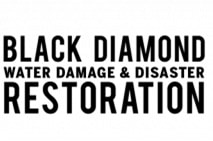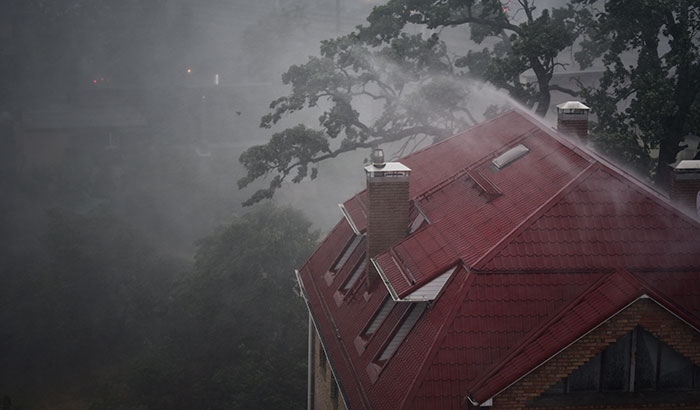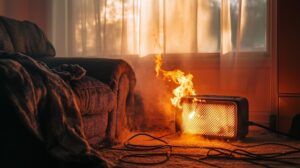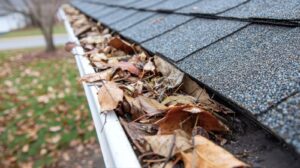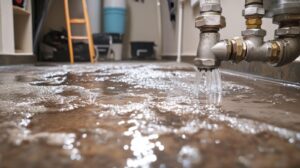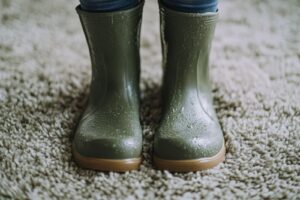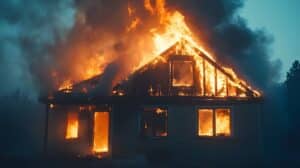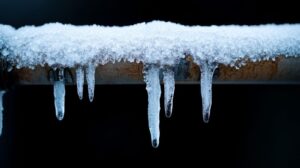Sudden rain storms can cause significant damage to your home if you don’t take care of the rain damage immediately. Rain can weaken your home’s structure, causing wood rot and mold formation. These are all frustrating, expensive, and hazardous for you and your family. No one wants a damaged home.
That’s why it’s important to understand how to respond to rain damage. The sooner you take action, the less of a damaged home you’ll have and the safer you and your family will be.
Let’s talk about it in more detail.
Causes of Rain Damage
Rain is an essential element of life, but it can also cause significant damage to your home if it makes its way into places it shouldn’t be. Rain can damage your walls and foundation, erode the soil around your house, or flood your basement. It can seep through your roof and windows, resulting in mold growth.
Because of how rain can devastate your home, it’s important to be aware of the causes of rain damage, so you can take preventative measures to keep rain damage outside, where it belongs.
- Your roof or windows are leaking. Leaking roofs and windows can be one of the most detrimental causes of rain damage because they allow a significant amount of water to accumulate in your home. If left unaddressed, standing water can weaken your home’s structural integrity, attract pests, and lead to mold growth.
- You have broken gutters, downspouts, or siding. If your gutters are blocked or broken, water can run off your home and saturate the walls of your home. If the siding is cracked or damaged, rainwater can seep through the cracks and corrode anything it comes in contact with. This invites mold growth and rodent infestations.
- Your HVAC system wasn’t installed properly. If your HVAC system isn’t properly sealed and insulated, water might seep through, damaging your home and the insulation protecting your home.
If the outdoor condenser unit isn’t securely fastened to the ground or house, rainwater can collect underneath or around it, straining the unit and potentially causing flooding in adjacent areas. - There is excessive water in the soil around your home. If the soil around your home can’t drain properly, it can damage the structure of your foundation.
Moisture can also seep into the cracks and crevices of your home’s exterior, leading to rot and mold growth. Finally, saturated soil can cause landslides, weakened walls, and compromised foundations from increased pressure in the soggy ground. - Your home needs better insulation. Without proper insulation, moisture and water vapor can seep in. This is dangerous since both can cause mold growth or rot, which leads to structural damage. Poor insulation also prevents your HVAC system from working correctly.
- You have clogged drains or blocked air vents. Clogged drains prevent water from draining away from your home’s foundation, leading to lots of moisture accumulating and seeping into your foundation, ultimately causing erosion.
Blocked air vents impede proper ventilation and allow moisture to accumulate inside walls instead of being released outside. This accumulation can cause structural damage and mold growth.
Identifying Signs of Rain Damage
Identifying signs of rain damage early on can help you avoid serious structural issues in your home. There are several signs, which we’ll look at in detail below.
- You have discolored walls or ceilings. Brown or yellow hues point to water damage.
- Your floors are buckling. Buckling occurs when the wood expands after absorbing water. It pushes against the floor joists and warps the subfloor when it buckles.
- There’s a musty smell in your home. If your home smells musty, it could be from a slow leak or mold.
- There are water stains on the walls or ceilings. Leaky pipes commonly cause this issue.
- Your wallpaper or paint is peeling. Both are signs that there’s moisture close by.
- There are cracks in the walls, ceiling, or foundation. Cracks can cause structural problems.
- You have warped windows or doors. Warping is often a sign of excessive moisture in the area, usually caused by poor insulation, infiltration from outside, or humidity levels. Warping can cause door and window frames to shrink, bow, twist, or even break apart.
- Your floors are bulging. Bulging floors indicate underlying structural issues that indicate excessive moisture in the area.
If you notice any of these signs, you might have a damaged home. You’ll want to inspect the areas around your windows, doors, walls, ceilings, attic spaces, bathrooms, and basements. It’s not uncommon to find a discolored wall, buckling floor, or peeling wallpaper in musty-smelling areas.
How to Avoid Rain Damage
It’s important to stay proactive to protect your property from the effects of heavy rain. A few simple steps can save you money in the long run. We recommend the following strategies:
- Regularly inspect your roof for signs of damage or wear and tear.
- Clear debris from gutters and downspouts to ensure proper drainage.
- Repair any broken seals around your windows or doors.
- Install a sump pump in the lower levels of your home to collect excess water.
- Install drainage panels or waterproofing materials on exterior walls.
- Ensure that landscaping slopes away from your home to keep water from your foundation.
Following these steps doesn’t guarantee that you’ll never deal with rain damage, but it certainly does reduce the risk of it getting into your home.
Contact Black Diamond Restoration Today
If you notice any signs of water damage to your home, it’s best to respond quickly. We recommend calling a professional to inspect your home, as they can identify the source of the issue, evaluate how severe the damage is, and provide advice and solutions for repairs.
Black Diamond Restoration has decades of experience restoring homes from any kind of water or rain damage. We also remediate fire, mold, smoke, sewage, storm, and biohazard damage, making us your one-stop source for any type of disaster restoration.
Call us at 801.512.4194, or visit our website to schedule your appointment today. Let Black Diamond Restoration restore your home today.
